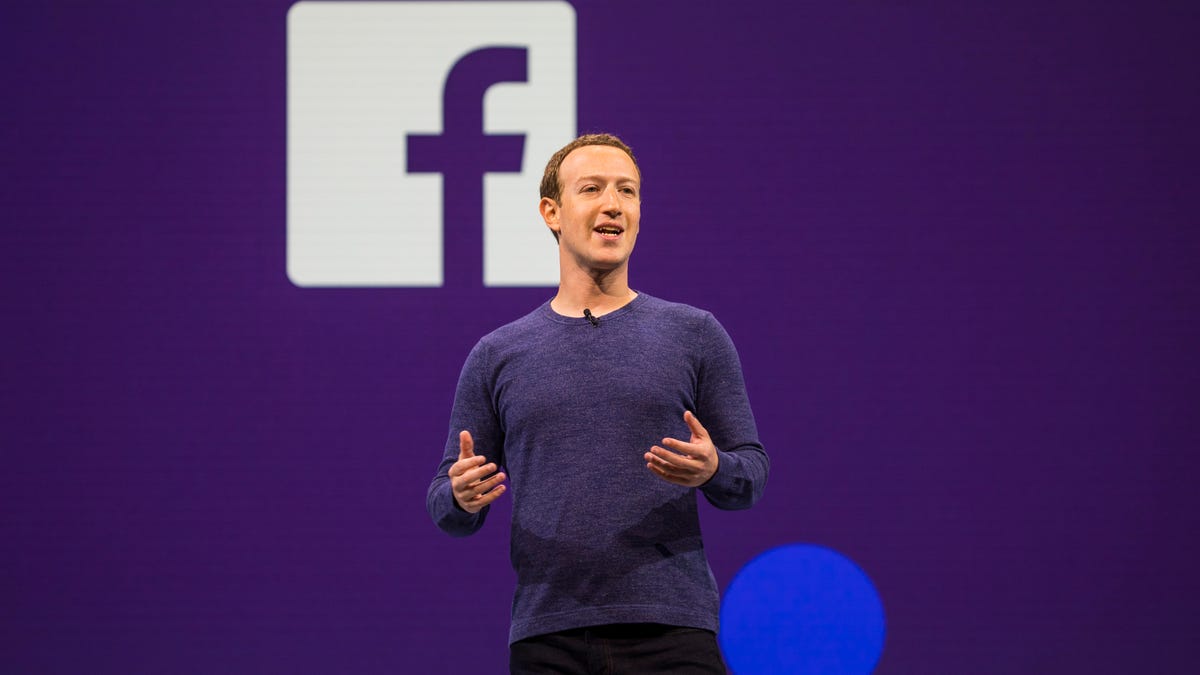Mark Zuckerberg wants news on Facebook to be better, and he's willing to pay
A year after saying he'd feature less news on Facebook, the CEO says maybe he wants more now.

Mark Zuckerberg is under intense scrutiny for his company's handling of privacy, fake news stories and the spread of hateful content.
Mark Zuckerberg isn't sure how news should work on Facebook .
Over the past couple of years, Zuckerberg has been shifting posts on Facebook's news feed to focus on friends and family, meaning you see more baby and wedding photos, and fewer news articles. As a result, Facebook may have slowed the spread of propaganda and false news stories, but it also hurt some online publications, which bet too heavily on Facebook to spread their videos and stories.
Now, in a video produced by Facebook and posted to Zuckerberg's profile on the site, the CEO discussed new ideas for how online news could work. Zuckerberg suggested, for example, that Facebook might build a dedicated section for "high quality news." He discussed the idea of paying publishers to support it, as well as potentially hiring editors to help curate news on the site from "broadly trusted" publications.
"We talked about the role quality journalism plays in building informed communities, and the principles Facebook should use for building a news tab to surface more high quality news, including the business model and ecosystem to support it," Zuckerberg wrote in an introduction for the video Monday.
Zuckerberg's ideas are just his latest effort to turn Facebook into a central destination for our online lives. But over the past couple years, he's faced criticism over his company's repeated failures to protect people's privacy, halt terrorism and harmful behavior, and stop the spread of propaganda, conspiracy theories and outright fake stories on its service.
Facebook's countered by creating a "war room" in an effort to halt election interference. It's created new advertising systems that ensure all political ads are transparently published and archived. And It's promised to do better at weeding out bad behavior, and ensuring people's privacy.
Over the weekend, Zuckerberg published an opinion piece in The Washington Post, in which he called for more regulation of the tech industry.
"Lawmakers often tell me we have too much power over speech, and frankly I agree," Zuckerberg wrote. "I've come to believe that we shouldn't make so many important decisions about speech on our own."
In the video published April 1, the interview is billed as part of Zuckerberg's promised "series of discussions about the future of technology and society" this year. In it, he spoke with Mathias Döpfner, head of European publisher Axel Springer.
Of course, Zuckerberg isn't the only one rethinking news lately. Apple last week announced an update for its news app, called Apple News Plus, which features access to about 300 publications for $9.99 a month. Google as well has begun agitating about how it handles news as European regulators consider passing a "link tax," which would charge companies like Google for displaying snippets of news stories.
As Zuckerberg made suggestions, Döpfner warned him about the pitfalls. He warned against Facebook curating news, saying it would invite even more scrutiny. "There cannot be so much dominance in one company that makes decisions globally about who reads what," he said. "Facebook should be more positioned as a neutral technology network that connects people and helps people to get informed. But whether the information is correct or incorrect, or good or bad, or from sources we like, you should be neutral as possible."
Additionally, Döpfner added that the more Facebook does to help publishers to make money, the higher quality journalism Facebook will attract. "We have to make a business in order to finance investigative journalists and correspondents and big foreign networks, and they cannot do that for free," he said. But countries that wish to use the platform for manipulation can.
Zuckerberg said his ideas around news are still taking shape.
"We don't want to build this in a vacuum," he said. "We want to go and talk to people about what the best way to make this work is."
You can watch the interview below:
This year I'm hosting a series of discussions about the future of technology and society. This time I sat down with Mathias Döpfner in Berlin. He started his career as a journalist and he's now the CEO of Axel Springer, the largest publisher in Europe. We talked about the role quality journalism plays in building informed communities and the principles Facebook should use for building a news tab to surface more high quality news, including the business model and ecosystem to support it. We also discussed the privacy-focused vision I laid out for the future of social networking and the four ideas for internet regulation I published this weekend. These are important topics and I could have spent hours talking to Mathias about them. It's important to me that we help people get trustworthy news and find solutions that help journalists around the world do their important work.
Posted by Mark Zuckerberg on Monday, April 1, 2019
Originally published April 1, 1:18 p.m. PT.
Update, April 2: Adds more details about Facebook's plans.

